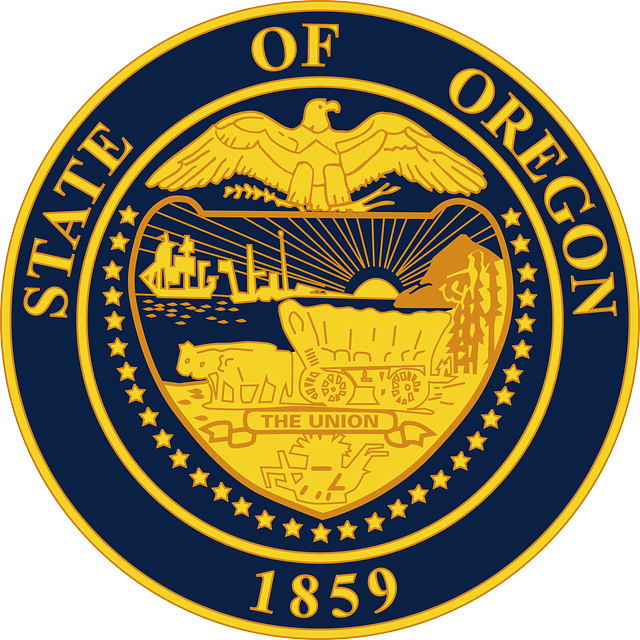The Oregon Probate Court facilitates the execution of an individual's wishes upon their death by overseeing complex estate matters. The state's probate process involves several key steps, including gathering essential documents, petitioning the court, appointing a personal representative, managing debts and assets, and ultimately distributing them according to the testator's instructions. Understanding this process, which spans from several months to over a year, is crucial for navigating Oregon's probate timeline and ensuring compliance with legal requirements. Seeking guidance from an experienced estate planning attorney specializing in Oregon probate law can help avoid delays and complications.
“Unwinding the complexities of the Oregon probate process is essential for anyone navigating an estate. This comprehensive guide offers a detailed look at every step, from initiating the process and understanding your role in Oregon’s probate court to managing asset distribution and overcoming common challenges.
We’ll explore the Oregon probate timeline, key players involved, and provide practical insights into every facet of probate proceedings. By mastering these aspects, you’ll be equipped to confidently navigate the intricate world of estate administration in Oregon.”
- Understanding Oregon Probate Court and Its Role
- Initiating the Oregon Probate Process: What You Need to Know
- Oregon Probate Timeline: A Comprehensive Guide
- Key Players in Oregon Probate Proceedings
- Distributing Assets: The Oregon Estate Process Explained
- Common Challenges and How to Navigate Them During Oregon Probate
Understanding Oregon Probate Court and Its Role

Understanding the role of the Probate Court in Oregon is a crucial step when navigating the state’s probate process. The Probate Court in Oregon oversees matters related to wills, trusts, and the distribution of deceased individuals’ estates. Its primary function is to ensure that the wishes outlined in legal documents are carried out while protecting the interests of all involved parties. This court plays a vital role in every Oregon probate process, ensuring that estate proceedings are managed fairly and efficiently.
When a person passes away, their estate goes through various probate proceedings in Oregon, which can be complex. The court appoints an executor or personal representative to manage the estate based on the instructions left behind in a valid will. This representative is responsible for gathering and managing assets, paying debts and taxes, and ultimately distributing the remaining property as specified by the testator’s wishes. Understanding these probate steps in Oregon is essential for anyone anticipating the process or currently involved in an estate matter.
Initiating the Oregon Probate Process: What You Need to Know

Initiating the Oregon Probate Process involves several key steps that must be carefully navigated. The first step is to gather essential documents, including a copy of the deceased person’s death certificate and any relevant financial records. These documents are crucial for proving identity and establishing the value of the estate. Once these are secured, an individual (often a close relative or trusted friend) will need to petition the probate court in Oregon. This typically involves filling out specific forms and submitting them along with the required fees to the appropriate county court.
After filing, the court will appoint a personal representative (often a named executor in the will) who is responsible for overseeing the administration of the estate. The probate timeline in Oregon can vary but generally includes several stages: opening the estate, gathering and valuing assets, paying debts and taxes, distributing remaining assets to beneficiaries, and closing the estate. Understanding probate proceedings in Oregon requires familiarity with these steps and the legal framework that governs them.
Oregon Probate Timeline: A Comprehensive Guide

Navigating the Oregon probate process can be a complex task, but understanding the timeline can help ease the stress. The process typically begins with the filing of a petition in the appropriate probate court in Oregon, followed by the appointment of an executor or personal representative to handle the estate. This initial phase often involves gathering necessary documents and valuing the assets, which can take several weeks.
Once the initial steps are complete, the probate court will grant letters of administration, enabling the appointed individual to manage the estate. The next stage involves the distribution of assets according to the deceased’s will or Oregon’s intestate laws if there is no valid will. This process includes identifying and notifying beneficiaries, paying debts and taxes, and eventually transferring ownership of assets to the rightful owners. The entire Oregon probate timeline can span from several months to over a year, depending on the complexity of the estate.
Key Players in Oregon Probate Proceedings

In Oregon, the probate process is a structured series of steps guided by the state’s probate court. Key players in these proceedings include the decedent (the person who has passed away), their beneficiaries, and various legal professionals. The estate executor or personal representative is appointed to manage the deceased’s assets, pay debts, and distribute the remainder to heirs according to the will or Oregon’s intestate laws if there is no valid will. This individual is responsible for initiating and navigating the Oregon probate process, which involves filing necessary documents with the probate court Oregon.
Understanding probate Oregon requires familiarity with these key roles and the timeline involved. The Oregon probate timeline begins with the filing of a petition for probate, followed by the appointment of an executor and the inventorying of assets. Subsequent steps include administering the estate, paying debts and taxes, and ultimately distributing the estate to beneficiaries. Throughout probate proceedings Oregon, all actions must be meticulously documented and reported to the court, ensuring transparency and accountability in the estate process.
Distributing Assets: The Oregon Estate Process Explained

In Oregon, the distribution of assets is a critical phase of the probate process, which involves several steps and court involvement. After a will has been validated or if there was no valid will, the probate court in Oregon oversees the gathering, valuation, and equitable distribution of the deceased’s assets according to state laws and the terms of any valid wills or trust documents. This process ensures that beneficiaries receive what is rightfully theirs while also considering taxes, debts, and other obligations.
The timeline for asset distribution varies based on the complexity of the estate and can be influenced by factors like potential disputes among heirs. Generally, after all necessary paperwork is filed and any contested issues are resolved, the probate court will issue orders authorizing the personal representative (often a named executor in a will) to distribute assets according to the established plan. Understanding these probate proceedings in Oregon is essential for those navigating the estate process, as it ensures that every step is taken legally and efficiently to honor the deceased’s wishes while managing their legacy.
Common Challenges and How to Navigate Them During Oregon Probate

Navigating the Oregon probate process can be challenging, but understanding the steps and what to expect can help ease stress during this difficult time. One common challenge is the complexity of probate court procedures in Oregon. The probate timeline in Oregon involves several stages, including filing a petition, appointment of a personal representative, gathering and managing assets, paying debts and taxes, and distributing the estate. It’s crucial to understand these processes and adhere to the Oregon probate steps to avoid delays or legal complications.
Another hurdle is deciphering the vast amount of paperwork and legal jargon involved in probate proceedings Oregon. This can be overwhelming for family members who are new to the process. To navigate these challenges, consider seeking guidance from an experienced estate planning attorney who specializes in Oregon probate law. They can provide clarity on understanding probate Oregon and ensure that all necessary documents are accurately completed, reducing potential errors or delays in the estate process.






